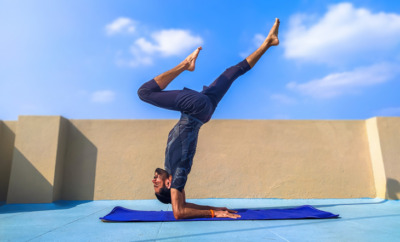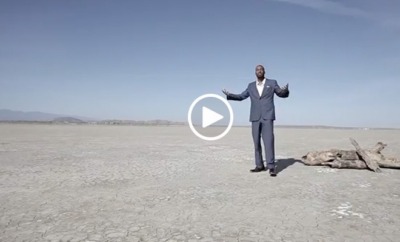The Parasympathetic Nervous System: Here’s How It Affects Your Wellbeing

As a follow up to my last article, it’s important to define just what the parasympathetic nervous system (PSNS) is and what makes it so important.
Learn About the Parasympathetic vs. Sympathetic Nervous Systems and How Yoga Affects Each
Why is it beneficial to know about this system in the body? What exactly does it do?
Let’s dive into the science behind it.
What Is the Nervous System?
To explain how the parasympathetic nervous system works, the nervous system as a whole should be defined.
The nervous system is the part of the body that is a main hub, or the control center of the body. It is extremely important because it interprets what the body senses and sends this information to the muscles, organs, etc. to tell them what to do.
It runs systems in our bodies that we don’t have to think about, such as our digestive system and cardiovascular system.
As if this system isn’t responsible for enough, it is also the part of the body that is responsible for mood and thoughts. It’s made up of the brain, spinal cord, and the nerves that reach every single part of the body.
The nervous system is further divided into the central nervous system (CNS) and the peripheral nervous system (PNS), which are then subdivided into the autonomic nervous system (ANS) and the somatic nervous system (SNS).
For purposes of this article, the part of the autonomic system called the parasympathetic nervous system (PSNS) will be highlighted. There are so many different benefits of this system that it can’t all be covered here. Rather, it’s importance to overall wellness will be discussed.
Need a nervous system reset? Try These 4 Restorative Yoga Poses to Relax Your Body and Mind
What Is the Parasympathetic Nervous System?
Our bodies are constantly working in ways we aren’t always consciously aware of. The parasympathetic nervous system helps with digestion and is activated during resting states.
It gets termed the “rest-and-digest” or “feed-and-breed” system for good reason. It stimulates digestion and decreases heart rate.
It is involved in respiration, sexual arousal, salivation, lacrimation (creating tears), and defecation.
As if all of those aren’t enough, healing processes and maintaining your health such as the aforementioned digestion, as well as detoxification, immune activities, and tissue regeneration happen in the parasympathetic state.
Digestion, detoxification, and immune functions are only turned on when your body is in a parasympathetic state. Simply put: when stress is on, your ability to heal is turned off. -Judi Cohen
It’s counterpart, the sympathetic system, is the “fight-or-flight” part of the system that activates in times of stress or threats of danger. Can you imagine living in a constant state of stress? Or always feeling as if you were in danger or as if your safety were compromised?
Read: Here’s What Your Nervous System’s Fight-or-Flight Response Means and How to Use It to Your Advantage
That is what it would feel like if the parasympathetic system wasn’t functional and/or activated after times of stress. There has to be a balance of both for balance (or homeostasis) in the body. Each system is more active than the other at specific times.
A main part of the parasympathetic nervous system is facilitated by the body’s longest nerve, called the vagus nerve, that starts in the brainstem and wraps around almost every organ in the body!
Why Should I Care About the Parasympathetic Nervous System?
Why is this imperative to know? In these uncertain times, we are always on the go or feel as if we have to be constantly “on” in careers, relationships, and responsibilities.
This is not sustainable for mental, emotional, or physical health. When the mind is overworked, the body can feel run down and, therefore, become sick.
The parasympathetic nervous system slows everything down so that the body’s natural healing can take place, and so that rejuvenation can occur.
This Is Why You Need to Have a Restorative Yoga Practice (According to an ER Doctor)
Think of the sympathetic system as the “gas pedal” and the parasympathetic nervous system as the “brake pedal” of the peripheral nervous system.
When the parasympathetic nervous system is activated, heart rate slows, cortisol levels drop, blood pressure decreases, and then the body can move back to a closer state of balance.
“Digestion, detoxification, and immune functions are only turned on when your body is in a parasympathetic state. Simply put: when stress is on, your ability to heal is turned off,” according to Jodi Cohen, author and developer of The Body Awareness Project and Vibrant Blue essential oils.
Mood can also be affected if this system isn’t working optimally, causing other physical or mental issues. If there is no rest, stress can occur or worsen, anxiety can develop, and mood can be negatively affected.
It goes without saying that other physical parts of the body run the risk of becoming diseased as well. It is imperative that this system does what it was created to do to find peace, relaxation, and balance.
How to Use Yoga to Activate Your Parasympathetic Nervous System
One way to achieve balance and activate the parasympathetic state is through the practice of yoga.
In this fast-paced world, Rod Stryker, a renowned yoga and meditation teacher, recommends Hatha Yoga postures that promote a parasympathetic nervous system response.
He recommends more seated or supine postures, hip openers, and forward bends to invite that relaxed state.
Yoga Nidra is also great to initiate the parasympathetic nervous system and These 8 Benefits of Yoga Nidra Will Make You Want to Practice ASAP
Ready to Activate Your Parasympathetic Nervous System?
Practice Restore with Allie Greer on YA Classes by YouAligned! Enjoy this restful practice to rejuvenate your mind, body, and spirit.


This Month's Letter
From the Editor
Monthly motivation and food for
thought from our founder.




























Comments